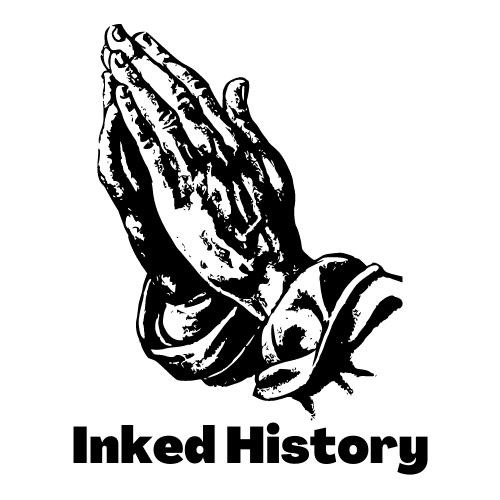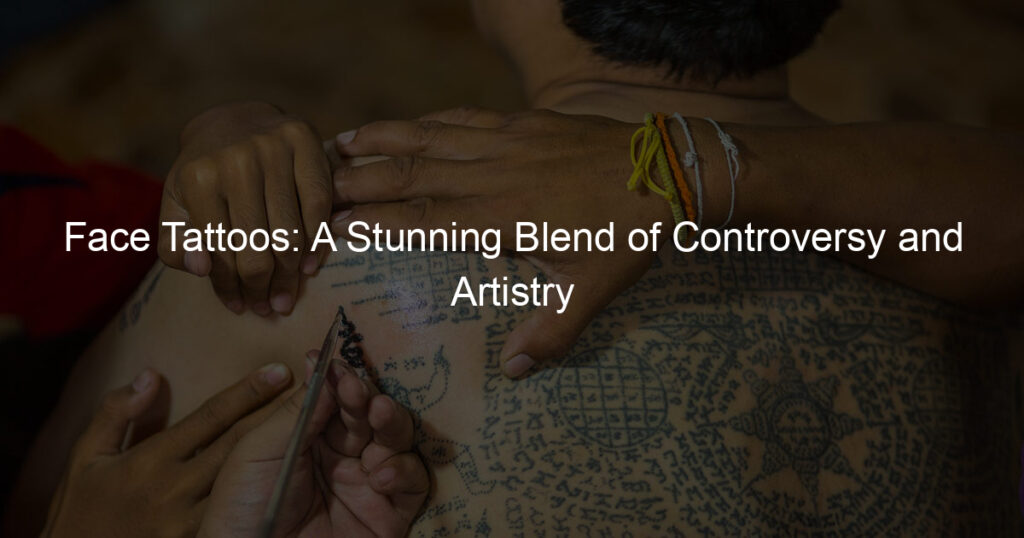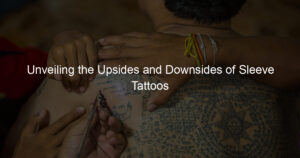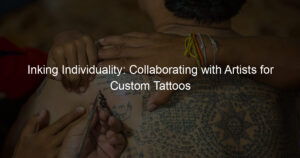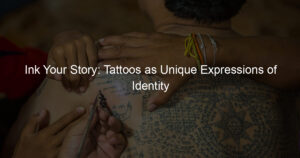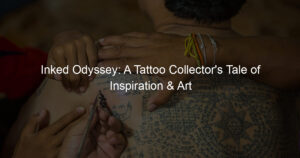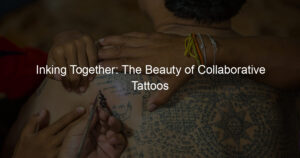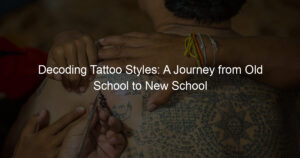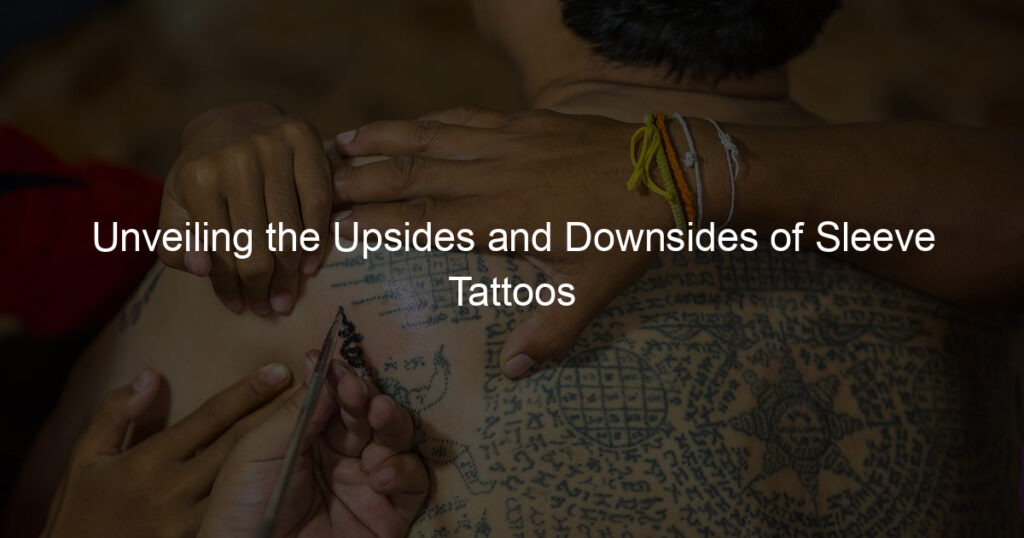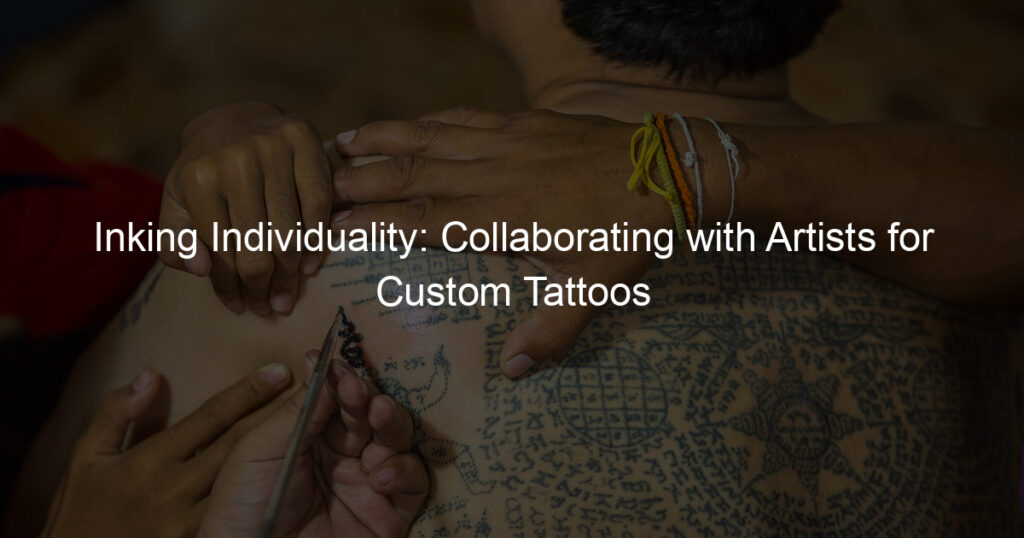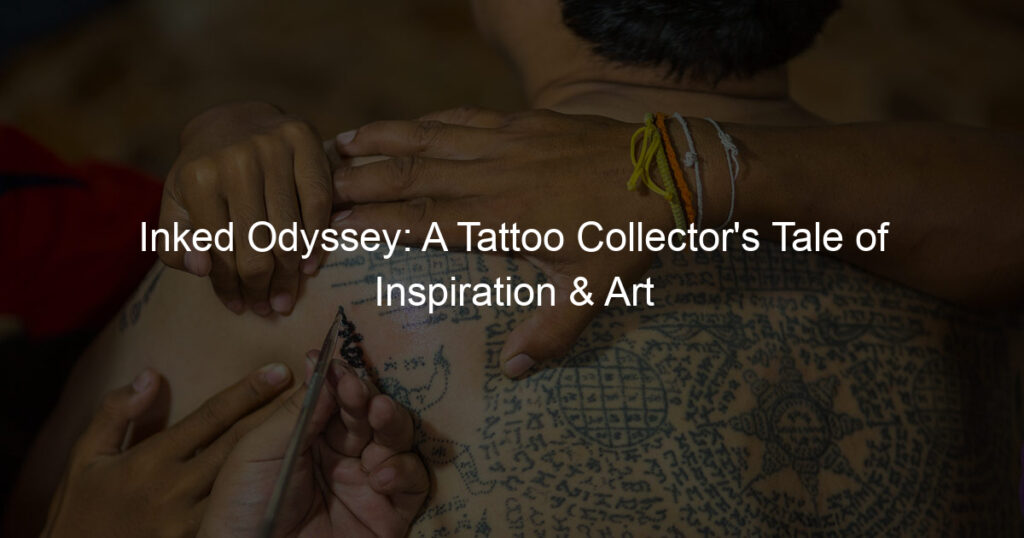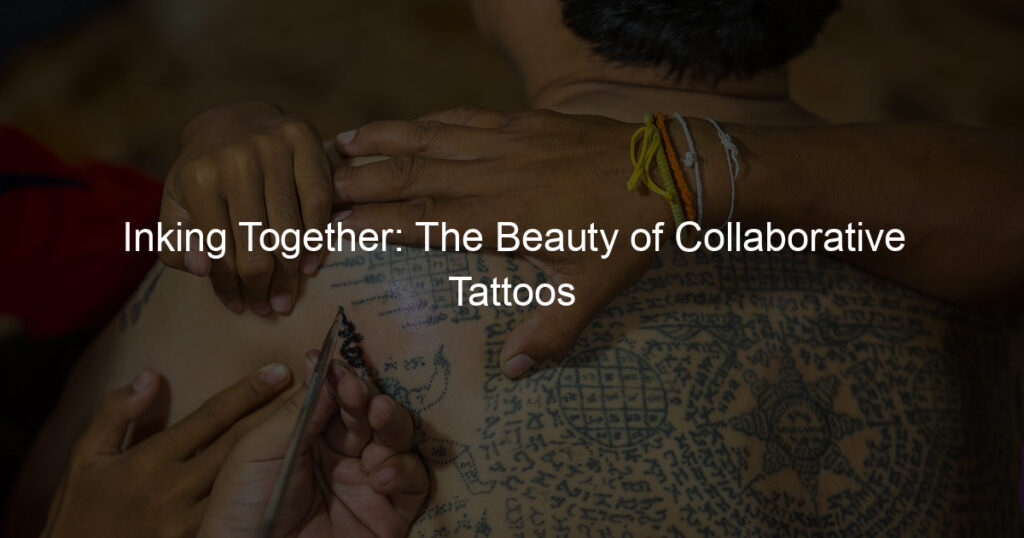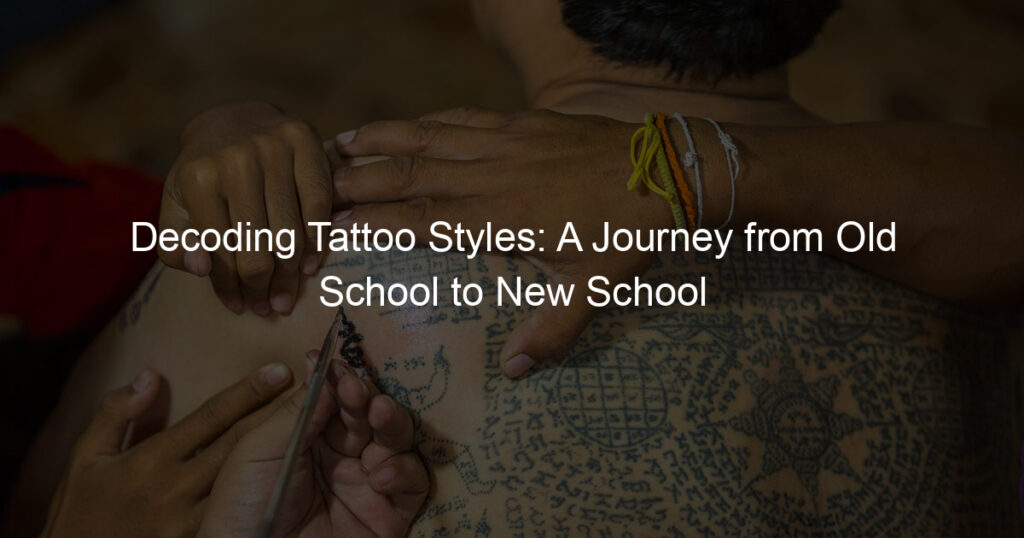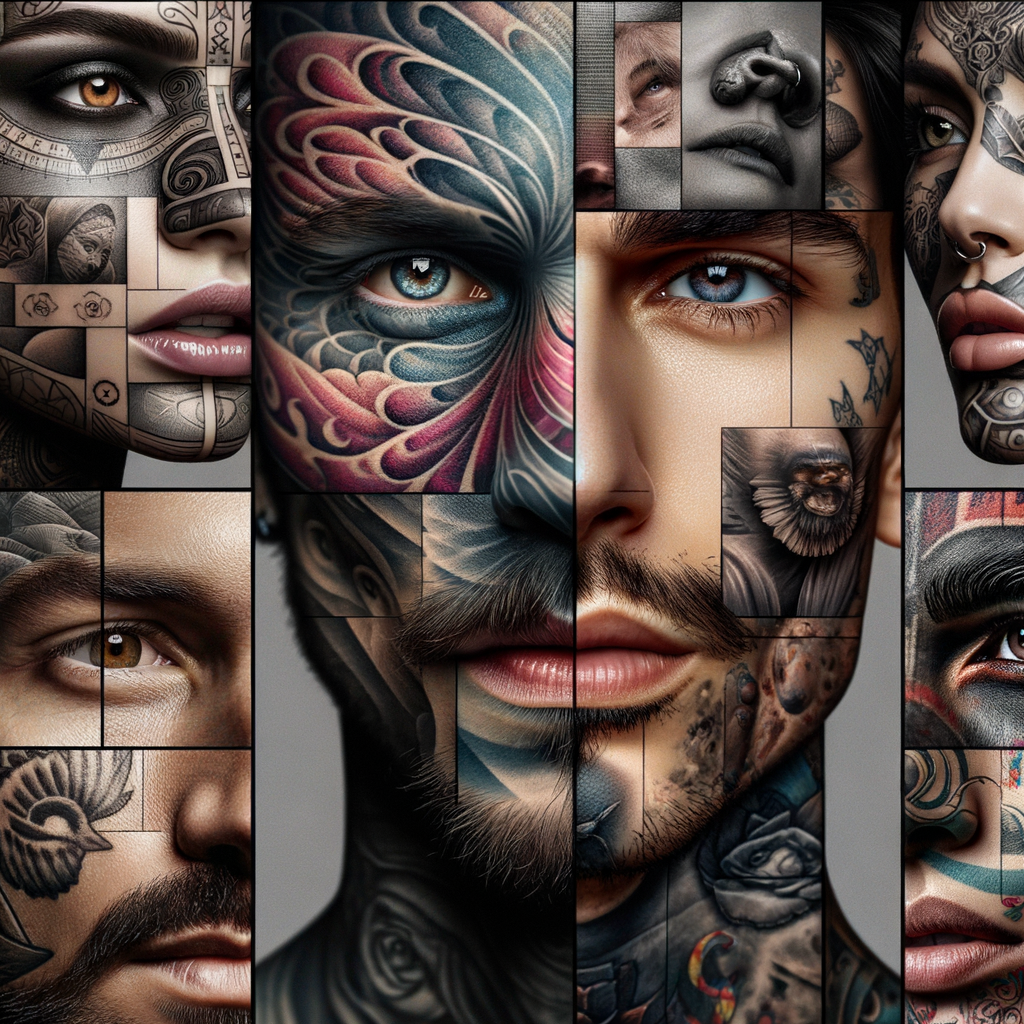
Introduction to Face Tattoos
Face tattoos are a unique form of self-expression that have been around for centuries, but they’ve recently seen a surge in popularity. In this section, we’ll explore what face tattoos are and why they’re becoming more popular.
A face tattoo is a design or marking made by inserting ink, dyes, and pigments, either indelible or temporary, into the dermis layer of the skin to change its pigment. The face, being a highly visible and sensitive area, is chosen by some individuals for tattoo placement to make a bold statement about their identity.
In recent years, face tattoos have become increasingly popular, particularly among younger generations and celebrities. This rise in popularity can be attributed to a variety of factors, including increased acceptance of tattoos in society, the influence of celebrity culture, and the desire for individuality and self-expression. Some popular face tattoo designs include small symbols, words, and even full-face designs.
While face tattoos are becoming more mainstream, they still carry a certain level of controversy and are not universally accepted. However, as societal norms continue to evolve, it’s likely that the popularity and acceptance of face tattoos will continue to grow.
The Beauty of Face Tattoos
Face tattoos are not just a trend, they are a form of art. They are a way for people to express their individuality and creativity. Let’s delve into the beauty of face tattoos, focusing on their artistic expression and the unique designs and styles they offer.
-
- Artistic Expression
Face tattoos are a unique form of artistic expression. They allow individuals to wear their heart on their sleeve, or in this case, their face. The face is a canvas, and the tattoo is the paint. The designs chosen often have deep personal meaning, reflecting the wearer’s passions, beliefs, or life experiences. For instance, a musician might get a tattoo of a musical note, while a nature lover might choose a floral design. This form of self-expression is deeply personal and can be incredibly empowering.
-
- Unique Designs and Styles
There is a vast array of unique designs and styles available when it comes to face tattoos. From intricate geometric patterns to delicate watercolor designs, the possibilities are endless. These tattoos can be bold and striking, or subtle and understated, depending on the wearer’s preference. Some people opt for a single, small tattoo, while others choose a series of tattoos that create a cohesive design across their face. The beauty of face tattoos lies in their diversity and the ability for each individual to choose a design that truly represents them.
Face tattoos are a beautiful form of self-expression that allow individuals to showcase their unique style and personality. They are a testament to the wearer’s courage and conviction, a permanent reminder of who they are and what they stand for. So, the next time you see a face tattoo, take a moment to appreciate the artistry and individuality it represents.
Face Tattoos Controversy
Face tattoos, while gaining popularity, are not without controversy. This section will delve into two major areas of contention: social perception and workplace acceptance.
-
- Social Perception of Face Tattoos
Many people have strong opinions about face tattoos. Some view them as a form of self-expression and artistry, while others see them as a sign of rebellion or poor decision-making. According to a survey conducted by YouGov, 76% of respondents believe face tattoos are the most unacceptable form of body art. This shows that despite growing acceptance, face tattoos still face significant social stigma.
-
- Workplace Acceptance
Workplace acceptance of face tattoos varies greatly depending on the industry and the company culture. In creative fields like art, fashion, and music, face tattoos might be more accepted. However, in more traditional sectors like banking, law, or healthcare, face tattoos might be seen as unprofessional. A study by the Journal of Retailing and Consumer Services found that customers perceived employees with visible tattoos as less competent and professional. This can make it harder for individuals with face tattoos to secure jobs in certain fields.
In conclusion, while face tattoos are becoming more common, they are still a source of controversy. It’s important to consider the potential social and professional implications before deciding to get a face tattoo.
Face Tattoo Trends
As the world of body art continues to evolve, so do the trends in face tattoos. Here, we will explore three popular trends that have been making waves in the industry: minimalist designs, symbolic tattoos, and colorful tattoos.
- Minimalist Designs
Minimalist designs are a popular trend in face tattoos. These designs are simple and subtle, often consisting of thin lines, geometric shapes, or small symbols. Despite their simplicity, they can hold deep meanings for the wearer. For example, a small dot can symbolize the concept of ‘beginning’ or ‘origin’. This trend is favored by those who prefer a less conspicuous form of body art.
- Symbolic Tattoos
Symbolic tattoos are another trend that has gained popularity. These tattoos often represent personal beliefs, values, or experiences. For instance, a person might get a face tattoo of a bird to symbolize freedom or a rose to represent love. This trend allows individuals to express their identity and individuality in a unique and visible way.
- Colorful Tattoos
Colorful tattoos are a vibrant and eye-catching trend in face tattoos. These designs can range from small, colorful accents to large, intricate pieces that cover a significant portion of the face. The use of color can add depth and dimension to a tattoo, making it more visually appealing. This trend is popular among those who want their tattoos to stand out and make a bold statement.
In conclusion, face tattoo trends are as diverse as the people who wear them. Whether you prefer minimalist designs, symbolic tattoos, or colorful tattoos, there’s a trend out there that will allow you to express your individuality and style in a unique and personal way.
Cultural Significance of Face Tattoos
Face tattoos hold a deep and profound significance in many cultures around the world. They are more than just a form of body art; they are a symbol of identity, heritage, and history. Let’s delve into the historical context and the cultural diversity of face tattoos.
-
Historical Context
Face tattoos have been a part of human culture for thousands of years. They were used in ancient civilizations to signify status, bravery, and accomplishment. For instance, the Maori people of New Zealand have a long-standing tradition of face tattoos, known as ‘moko’. These tattoos were seen as a rite of passage, marking the transition from childhood to adulthood.
In some cultures, face tattoos were used to symbolize a person’s role in society. The Ainu people of Japan, for example, used face tattoos to signify that a woman had reached marriageable age. These historical practices highlight the deep-rooted significance of face tattoos in various cultures.
-
Cultural Diversity and Face Tattoos
Today, face tattoos are seen in a multitude of cultures, each with its unique interpretation and significance. In some African cultures, face tattoos are used as tribal markings, signifying a person’s clan or lineage. In the Amazon Rainforest, the indigenous tribes use face tattoos as a form of expression and identity.
In the Western world, face tattoos have been associated with subcultures such as the punk and hip-hop communities. They are often seen as a form of rebellion or individuality. Despite the diverse interpretations, the common thread that runs through all these cultures is the use of face tattoos as a means to express one’s identity and heritage.
In conclusion, the cultural significance of face tattoos is vast and varied. They are a testament to the rich tapestry of human history and diversity. While the perception of face tattoos may vary across different societies, their cultural significance remains deeply ingrained in many communities around the world.
Face Tattoos in Fashion
Face tattoos have become a popular trend in the fashion world, especially among celebrities. Let’s take a closer look at some famous personalities who have embraced this trend.
Celebrities with Face Tattoos
Many celebrities have chosen to express themselves through face tattoos. Here are two case studies of famous musicians who have made face tattoos a part of their personal style.
-
Case Study: Post Malone
Post Malone, a popular American rapper, is known for his unique music and his face tattoos. His tattoos include a sword, barbed wire, and the words “Always Tired” under his eyes. He once said in an interview that his tattoos are a form of self-expression and that they make him feel more confident.
-
Case Study: Lil Wayne
Lil Wayne, another influential American rapper, also sports numerous face tattoos. His tattoos include teardrops, a cross, and the word “Fear God”. He views his tattoos as a reflection of his life experiences and personal beliefs.
These celebrities have played a significant role in popularizing face tattoos, influencing many of their fans and the fashion industry to embrace this form of self-expression.
Fashion Industry’s Acceptance
The fashion industry, known for setting trends and pushing boundaries, has started to embrace the beauty and uniqueness of face tattoos. Let’s explore how this acceptance is reflected in high fashion runways and streetwear trends.
-
- High Fashion Runways
High fashion runways, the epitome of style and elegance, have started to showcase models with face tattoos. This is a significant shift, as these platforms are known for their strict beauty standards. For instance, in the 2019 Paris Fashion Week, a model with a face tattoo walked the runway for the first time, marking a milestone in the industry’s acceptance of this form of self-expression.
-
- Streetwear Trends
Streetwear, a style rooted in the youth culture of urban areas, has always been a space for individuality and rebellion. Face tattoos fit perfectly into this aesthetic. They have become a common sight in streetwear fashion shoots and are often featured in popular streetwear blogs and magazines. This trend is not just confined to the streets but has also influenced high fashion brands, further solidifying the acceptance of face tattoos in the fashion industry.
In conclusion, the fashion industry’s acceptance of face tattoos is a testament to the changing perceptions about beauty and individuality. It’s a bold step towards embracing diversity and encouraging self-expression.
Face Tattoo Designs
Face tattoos come in a variety of designs, each with its own unique appeal and meaning. Let’s explore some of the most popular types of face tattoo designs.
-
- Symbolic Designs
Symbolic designs are often chosen for their deep personal or cultural significance. They can represent a variety of things, such as beliefs, values, or life experiences. For example, a teardrop tattoo can symbolize a significant loss or hardship, while a star might represent hope or ambition. These designs are often simple, but carry a powerful message.
-
- Abstract Designs
Abstract designs are all about creativity and individuality. They don’t necessarily represent anything specific, but are chosen for their aesthetic appeal. These designs can range from geometric shapes to intricate patterns. They allow the wearer to express their artistic side and stand out from the crowd.
-
- Portraits and Realistic Designs
Portraits and realistic designs are a testament to the skill of the tattoo artist. These designs often depict a person’s face or other realistic imagery with incredible detail. They can be a tribute to a loved one, a favorite celebrity, or even a self-portrait. This type of design requires a high level of skill and precision, making it a truly impressive form of body art.
Choosing a face tattoo design is a personal decision that should be made with careful consideration. It’s important to choose a design that not only looks good, but also holds a special meaning for you. After all, a face tattoo is a bold statement that will be with you for a lifetime.
History of Face Tattoos
Let’s take a journey back in time and explore the fascinating history of face tattoos. From ancient civilizations to the modern era, face tattoos have been a significant part of many cultures around the world.
-
- Ancient Civilizations
Face tattoos have been around for thousands of years. In ancient civilizations, they were not just a form of body art but also a symbol of status, bravery, and spiritual beliefs. Let’s look at some examples.
In ancient Egypt, tattoos were predominantly found on women. They believed that tattoos on the forehead, chin, and cheeks could protect against evil spirits. Similarly, the Maori people of New Zealand used a form of face tattooing called ‘Ta Moko’. It was a rite of passage that showcased a person’s lineage, status, and achievements.
The Picts, an ancient tribe in Scotland, were also known for their face tattoos. They used intricate designs to intimidate their enemies in battle. These tattoos were so important that they were often depicted in their sculptures and artwork.
-
- Modern History
As we move into the modern era, face tattoos have evolved significantly. In the 18th and 19th centuries, face tattoos were often associated with sailors and criminals. However, this perception has changed over time.
In the 20th century, face tattoos became popular among celebrities and musicians, helping to bring them into the mainstream. Today, they are seen as a form of self-expression and individuality. From intricate designs to simple symbols, face tattoos have become a popular trend in the world of fashion and art.
In conclusion, the history of face tattoos is rich and diverse. They have been a part of human culture for thousands of years, serving various purposes from spiritual protection to personal expression. As we look to the future, it’s clear that face tattoos will continue to evolve and remain a significant part of our cultural identity.
Face Tattoo Removal
Face tattoos can be a bold expression of personal style, but sometimes, people change their minds. If you’re considering removing a face tattoo, it’s important to understand the process, cost, and potential risks and complications.
-
Process and Cost
The process of removing a face tattoo involves using a special laser that breaks down the tattoo ink into tiny particles. These particles are then naturally eliminated by your body. This process can take several sessions, depending on the size and color of your tattoo.
The cost of face tattoo removal can vary widely, depending on factors such as the size of the tattoo and the number of sessions required. On average, you might expect to pay between $200 and $500 per session. Remember, it’s important to consult with a professional to get an accurate estimate for your specific situation.
-
Risks and Complications
While tattoo removal is generally safe, there are some potential risks and complications to be aware of. These can include skin discoloration, infection, and scarring. In some cases, the tattoo may not be completely removed, and some colors may be more difficult to remove than others.
It’s also important to note that the process can be uncomfortable, and some people describe it as feeling like a rubber band being snapped against the skin. However, most professionals use a local anesthetic to minimize discomfort.
In conclusion, removing a face tattoo is a significant decision that should not be taken lightly. It’s important to do your research, understand the process and potential risks, and consult with a professional to make an informed decision.
Conclusion: The Future of Face Tattoos
As we have explored in this comprehensive guide, face tattoos have a rich history, diverse cultural significance, and are becoming increasingly popular in fashion and among the general public. But what does the future hold for face tattoos? Let’s delve into the changing perceptions and increasing acceptance of face tattoos.
-
- Changing Perceptions
The perception of face tattoos is gradually changing. Once associated with rebellion or criminality, face tattoos are now seen as a form of self-expression and individuality. Celebrities and influencers, like Post Malone and Kat Von D, have played a significant role in this shift. Their face tattoos have not only become their signature look but also a part of their brand. This has helped to normalize face tattoos and shift the perception from negative to positive.
-
- Increasing Acceptance
Along with changing perceptions, there is an increasing acceptance of face tattoos. A recent study showed that 30% of millennials have at least one tattoo, and the number is growing. As tattoos become more common, so does the acceptance of them, including face tattoos. This is not to say that everyone accepts or likes face tattoos, but the stigma is certainly lessening.
In conclusion, the future of face tattoos looks promising. With changing perceptions and increasing acceptance, face tattoos are becoming less taboo and more mainstream. While they may not be for everyone, it’s clear that face tattoos are here to stay. As we move forward, we can expect to see more diversity and creativity in face tattoo designs, further pushing the boundaries of this ancient art form.
